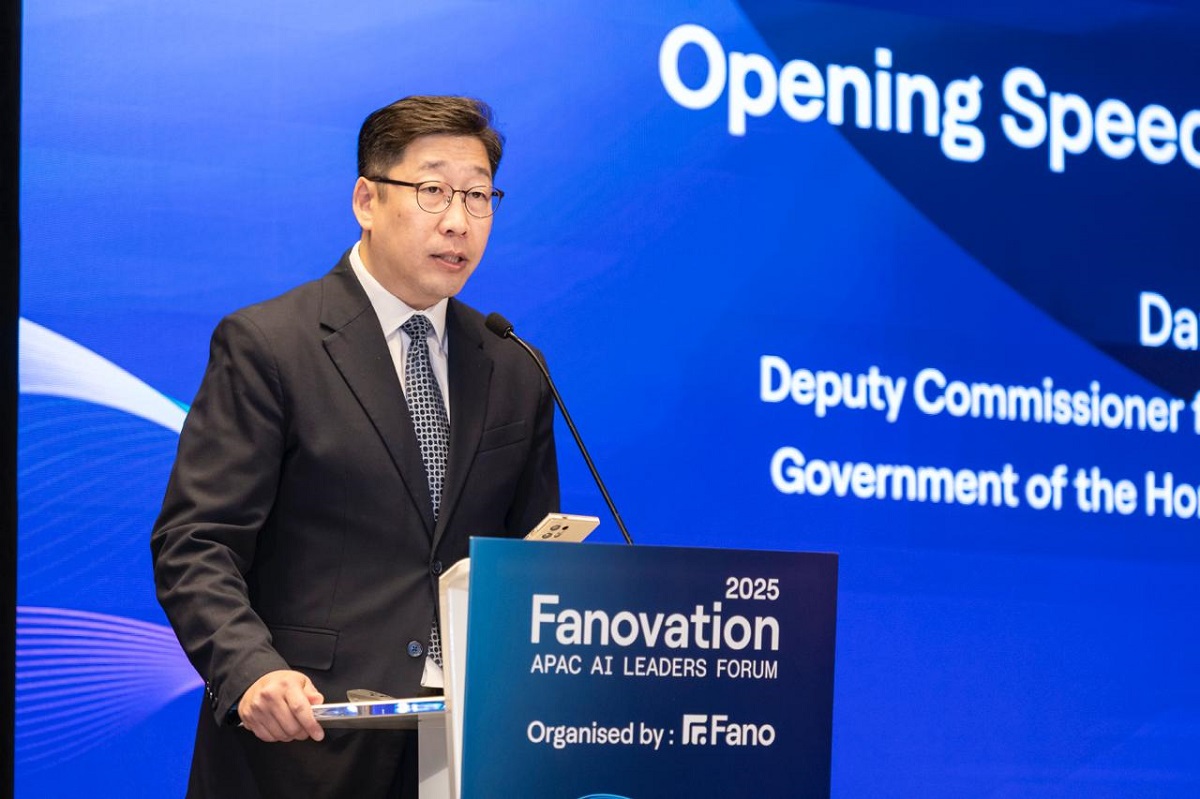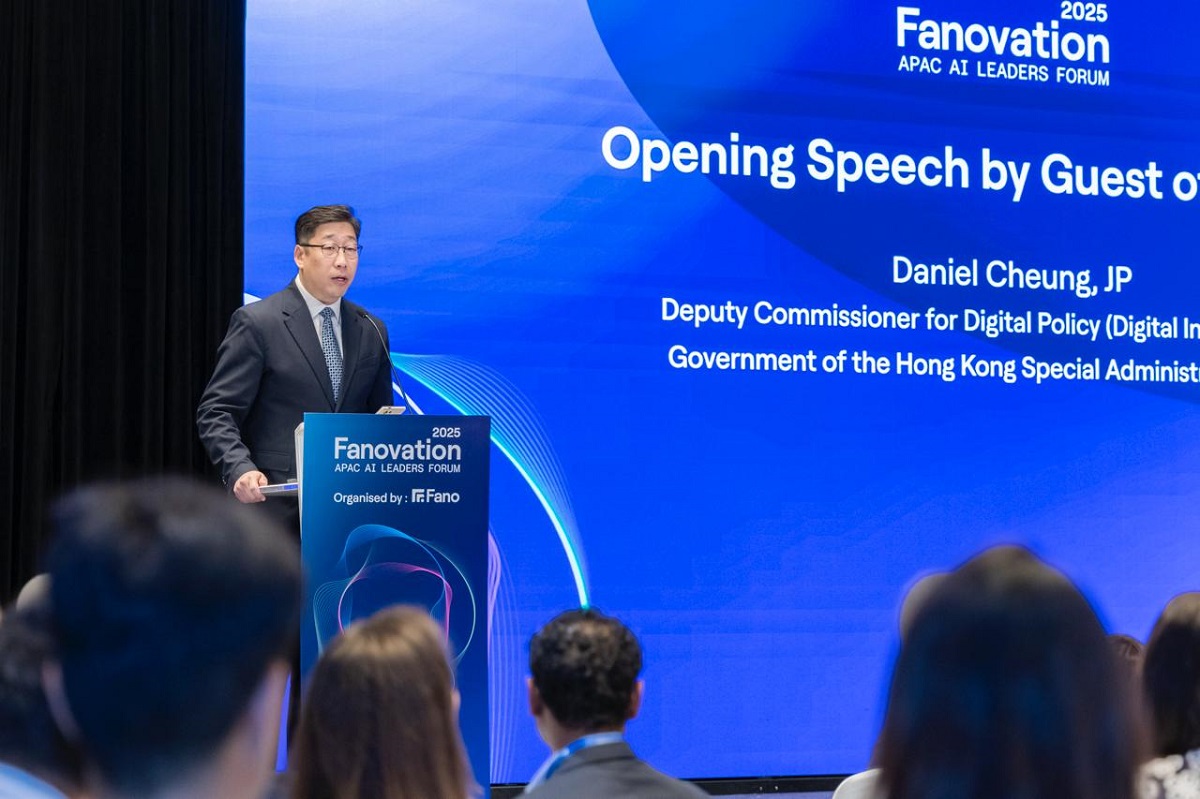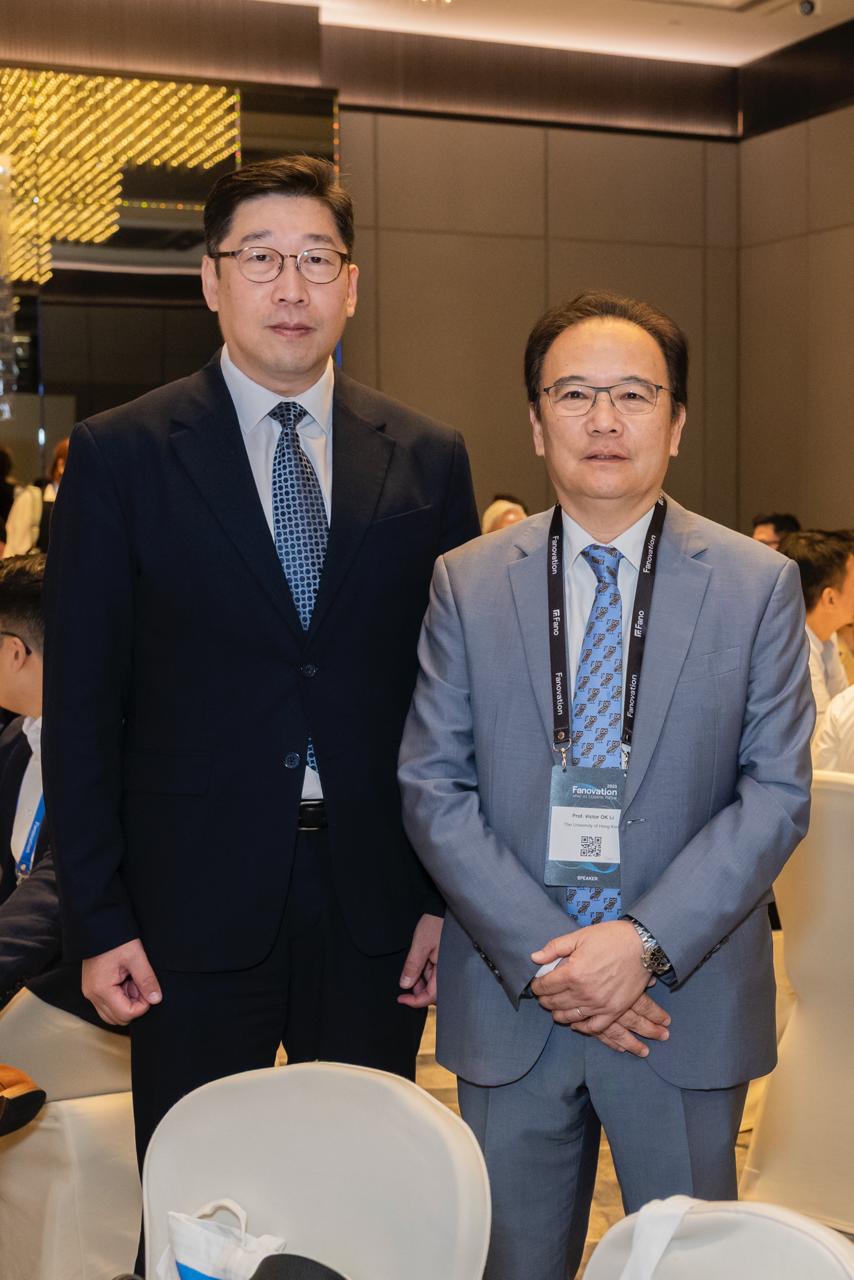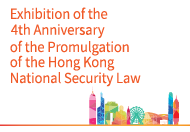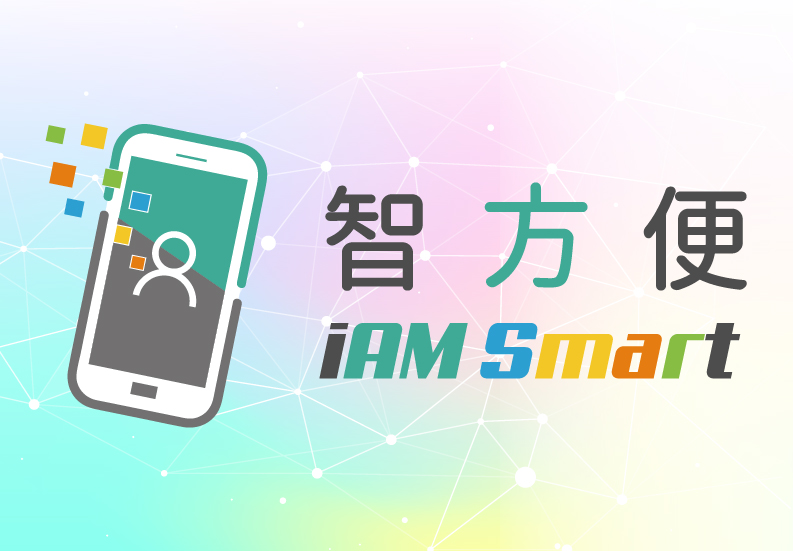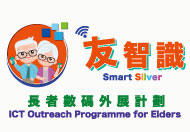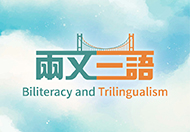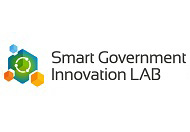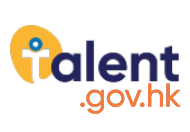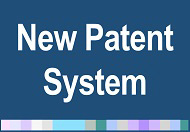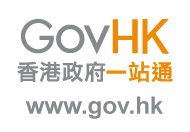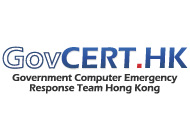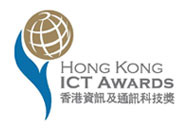Opening Remarks by Mr Daniel Cheung, JP, Deputy Commissioner (Digital Infrastructure), at the “Fanovation 2025: The APAC AI Leaders Forum” (with photos)
Miles (CEO & Co-Founder of Fano Labs & Adjunct Assistant Professor in Department of Electrical and Electronic Engineering, University of Hong Kong, Dr Miles Wen), distinguished guests, ladies and gentlemen,
Good morning. It is my honour to join you all at Fanovation 2025. Focusing on the theme “Pioneering a Voice-driven Agentic Future for Enterprises”, today’s forum serves as a timely call for actions to align the strategic adoption of artificial intelligence (AI) while maintaining public trust, robust security and operational efficiency.
Undoubtedly, AI has become a key driving force of a new round of scientific and technological revolution as well as industrial transformation. AI is not only transforming the various sectors such as healthcare, finance, transportation and manufacturing, but also unveiling new opportunities for innovation and growth.
The Central People’s Government introduced the “AI+” initiative in the Government Work Report in March last year, aiming to advance research and application of big data, AI and other technologies, and to build a globally competitive digital industry cluster. A more detailed implementation plan was also promulgated by the country in August this year, underscoring the importance of blending AI into every facet of society and economy.
In Hong Kong, we have already formulated a comprehensive strategy for the multifarious development of AI. The “Hong Kong Innovation and Technology Development Blueprint” highlighted our commitment to the development of the AI and data science industries. The Blueprint not only lays the foundation for promoting the application of AI within the Government to enhance public services, but also provides a clear direction for building an AI ecosystem and strengthening the industrial value chain in Hong Kong at different levels.
Since the promulgation of the Blueprint, we have proactively implemented its development strategy to foster the AI ecosystem in Hong Kong. It is a multifaceted approach that encompasses policy formulation, talent cultivation, digital infrastructure enhancement, advancement of research and development (R&D), funding support, identification of use cases and promotion of AI governance. Now let me share with you some of these key initiatives.
On nurturing talents in AI, robotics and related technologies, the AIR@InnoHK research cluster and its R&D labs help gather top-notch researchers from around the world, as well as foster global research collaboration focusing on AI and robotic technologies. On the other hand, we have just rolled out the $3 billion Frontier Technology Research Support Scheme, which will help funded universities attract international renowned scientific researchers in frontier technologies. We have also earmarked $1 billion for the establishment of the Hong Kong AI R&D Institute in 2026, to facilitate upstream AI R&D, the midstream and downstream R&D outcome, and the expansion of use cases.
Meanwhile, Cyberport’s Artificial Intelligence Supercomputing Centre came into operation in December 2024 to provide high-performance AI computing infrastructure for supporting the increasing local demand for computing power. To empower local institutions, R&D centres and enterprises in leveraging the computing power of the Centre, we launched the HK$3 billion AI Subsidy Scheme to subsidise at least 70% of computing costs for eligible institutions and enterprises in using the AI facilities, broadening their access to the necessary computing power for developing advanced AI applications and fostering innovation across sectors. This initiative not only accelerates R&D but also attracts international talents and enterprises to Hong Kong, strengthening our role as a bridge between the Chinese Mainland and the global AI ecosystem.
In terms of applications within the Government, AI has been widely utilised to analyse data for service improvement. We have adopted AI technology to enhance our 1823 contact centre services to provide feedback to citizen’s enquiries and facilitate the handling of complaints. Apart from this, the Hong Kong Generative Artificial Intelligence R&D Center (HKGAI) set up under the AIR@InnoHK in 2023 launched its self-developed large language model (LLM) in February this year. Based on this LLM, the HKGAI has developed a series of generative AI applications, including HKPilot, HKChat and HKMeeting, which are currently piloted by around 30 000 civil servants across all bureaux and departments. Such applications assist our colleagues with tasks like document drafting, translation, summarisation, meeting minute-taking and AI-powered information retrieval, helping to raise administrative efficiency.
Seeing its great potential for the civil service to transform work processes, improve decision-making and deliver better public services, the Government has set up an AI Efficacy Enhancement Team to co-ordinate and steer government departments to apply AI technology effectively to their work to improve efficacy. The Team will also drive government departments to launch “AI flagship projects” to expedite processing of various licences and applications through the use of AI. Moreover, we will develop an “AI assistant” and integrate it into “iAM Smart” and “Digital Corporate Identity” to provide users with instant responses to enquiries, personalised services, and tailored recommendations on suitable funding schemes and public service support to enterprises, in particular the SMEs.
While AI brings us many opportunities, we are fully aware that effective AI governance is crucial for the safe and responsible adoption of AI. It is therefore imperative to strike a balance between fostering innovative AI applications and mitigating the associated risks. To address such concern, the Digital Policy Office (DPO) promulgated the “Ethical Artificial Intelligence Framework” to provide guidance in adopting AI technologies through a structured approach that integrates ethical considerations when implementing IT projects. Additionally, the DPO also promulgated the “Hong Kong Generative Artificial Intelligence Technical and Application Guideline” in April this year to provide appropriate codes and best practices for the development and use of generative AI technologies.
The Government will continue to cultivate a promising AI ecosystem supported by ethical guidelines that safeguard the interests of all citizens. We cannot achieve it alone without the collaborative effort of the academia, industry, business and the community at large. Let’s work together to embrace AI and reap its benefits for the betterment of the world. In closing, may I wish the Forum a great success, and everyone an inspiring experience. Thank you.
- ENDS -






